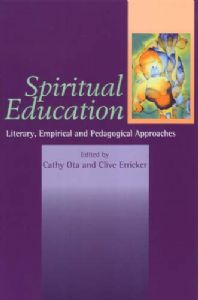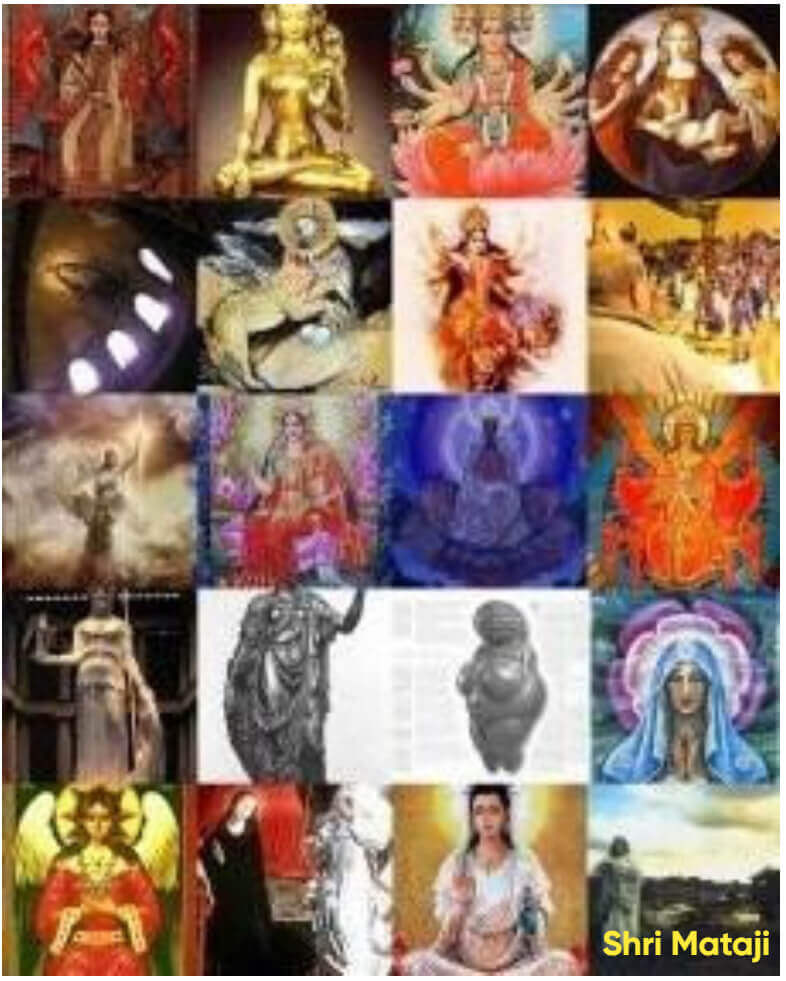Qi: "When it goes into man's chest, the man becomes a sage"
Qi is the breath that animates cosmos and consciousness. When it enters the chest, it awakens sagehood—echoing the metaphysical truth that breath is spirit. This page bridges Chinese wisdom with esoteric traditions, revealing Qi as the vital force shared across prana, pneuma, ruach, and Kundalini. In this synthesis, the ancient Guanzi prophecy finds fulfillment in the living experience of Self-realization. Modern scholarship (Adler 1997; Pas & Leung 1998; Ota & Erricker 2001) situates Qi within the translinguistic family of "vital breaths": Hebrew Ruach, Greek Pneuma, Sanskrit Prana, and Latin Spiritus. In each, the etymological core denotes "air in movement," "wind," or "breath."

"What, if any, are the equivalent Chinese terms for 'spirit' and 'spirituality'? A brief consideration of this question provides some helpful background for understanding how the spiritual dimension of human life is conceptualized and expressed by the Chinese.
Etymologically, in Chinese 'it is probably qi that bears the closest resemblance to 'spirit' (Adler 1997). A simple comparison shows the basis for this judgment. According to Barnhart, 'The original English use of spirit are mainly derived from passages in the Vulgate, in which Latin spiritus is used to translate Greek pneuma and Herbrew ruah' (1999; 1047). Holl gives the original meaning of ruah as 'air in movement' (1998: 8), while Adler highlights 'the analogous words in Hebrew, classical Greek, and Sanskrit (ruach, pneuma, and prana) that similarly cover the range of meanings from wind and breath to spirit' (1997).
The original pictograph for the Chinese character qi consists of three roughly horizontal strokes representing parallel layers of clouds arising from the condensation of moisture. It thus denotes 'air, vapour, gas' (Lindqvist 1991: 172). Later, the pictograph for rice was inserted under the original strokes, probably to show the 'vapors' rising out of a saucepan of boiling grain (172). This composite pictograph became the present character for qi. Pas and Leung speculated that, in a natural extension of meaning, qi as vapours came to mean 'breath' (which in winter is very similar to steam). Because in many cultures 'breath' signifies 'life,' a further extension became understandable: 'vital spirit, vitality, vital breath, life energy, vital force' (1998:78). They stress the parallels qi has in other traditions, particularly regarding the fact that the same vital principle or energy that qi represents is supposed to course through both the cosmos and individual beings, quoting Mair's judgment that 'The same concept exists in the Indian tradition as prana, in the Greek tradition as pneuma, in the Latin tradition as spiritus, and in the Hebrew tradition as ruah' (Mair, quoted in Pas and Leung 1998:78).
Qi is a central term in both Daoism and Confucianism, the two dominant Chinese intellectual traditions influencing all aspects of life, from health to medicine, martial arts, fengshui (geomancy), to literature and various fine arts. A multiplicity of terms have been used for translating qi into English, including 'ether, elan vitale or vital force, humour, breath or psychosomatic force' (Lai 2001:446), but often it is simply left untranslated. Interestingly, qi is seldom translated as spirit, suggesting that, despite the commonalities, there are also important differences between the two.
In its most generalized sense, qi denotes 'the primal stuff out of which everything else in the universe condenses' (Van Norden 1996: 227). Its all-encompassing nature is exemplified by the following extracts from the ancient classis Guanzi:
'the qi of all things changes and thus becomes life'; 'when qi goes to the ground, grain grows; when it goes into the heavens, there emerge constellations; when it floats in the air, it becomes ghosts and spirits; when it goes into man's chest, the man becomes a sage,' and 'therefore when there is qi, there is life; when there is no qi, there is death.' (quoted in Tang, 1991:21)"
Cathy Ota, Clive Erricker, Spiritual Education
Sussex Academic Press, pp. 154-55
Qi and the Cool Breeze of the Paraclete
Abstract
This paper examines the classical Chinese concept of Qi (氣) as articulated in early Daoist-Confucian sources—particularly in the Guanzi, which declares that "when Qi goes into man's chest, the man becomes a sage"—and situates it within the pneumatological framework revealed by the Paraclete Shri Mataji Nirmala Devi (1923–2011). By correlating Qi with cognate concepts such as Ruach (Hebrew), Pneuma (Greek), Prana (Sanskrit), and the Cool Breeze of the Holy Spirit described in Sahaja Yoga, the paper argues that the same "Vital Breath" or Divine Wind constitutes an experiential, universal substratum uniting Eastern and Western theologies of Spirit. The analysis demonstrates that the pneumatological awakening mediated by the Paraclete fulfills the ancient intuition of the Guanzi: the internalization of cosmic breath (Qi/Sheng Qi) transmuting ordinary consciousness into sagehood or divine realization.
1. Introduction
Few concepts bridge metaphysical and physiological discourse as integrally as Qi (氣), the subtle "breath-energy" that, in Chinese cosmology, animates all beings. Classical texts, notably the Guanzi (4th–3rd century BCE), give Qi both cosmological and ethical significance:
This dictum encapsulates the entire spectrum of being—from agriculture to astronomy, spirituality, and morality—through the single dynamics of Qi.
Modern scholarship (Adler 1997; Pas & Leung 1998; Ota & Erricker 2001) situates Qi within the translinguistic family of "vital breaths": Hebrew Ruach, Greek Pneuma, Sanskrit Prana, and Latin Spiritus. In each, the etymological core denotes "air in movement," "wind," or "breath."
Similarly, across her global ministry, Shri Mataji Nirmala Devi—recognized by followers as the Paraclete promised by Christ—identified the same pneumaic current as Chaitanya, the "Cool Breeze of the Holy Spirit," experienced physically upon Self-Realization. This phenomenon provides direct, verifiable experience of the universal life-energy known in China as Qi, demonstrating the continuity of spiritual physiology across civilizations.
2. Cosmological Origins of Qi and the Formation of Spirit
According to early Chinese cosmology, Qi is the primal substrate of existence: "the primal stuff out of which everything else in the universe condenses" (Van Norden 1996: 227). The Guanzi's theory of Qi integrates the moral and material, stating that the proper regulation of one's internal Qi leads to balanced governance and sagehood.
Etymologically, the character 氣 evolved from pictographs of vapors over boiling rice—signifying steam, air, and the unseen essence that sustains life. Adler (1997) and Holl (1998) highlight that Ruach and Pneuma carry the same metaphorical field, blending meteorology and spirituality. Thus, across linguistic boundaries, existence itself is the condensation of breath, and sages are those who consciously unite individual respiration with the cosmic wind.
In Shri Mataji's doctrine, this cosmic field is the All-pervading Power of Divine Love, experienced as a Cool Breeze flowing through the palms and fontanelle once the Kundalini energy rises. Here, the Qi that "flows through the chest making man a sage" becomes the perceptible Pneuma initiating Self-Realization—the point where divinity integrates with individuality.
3. Qi, Ruach, and the Holy Spirit: The Universality of Vital Breath
The Hebrew Ruach Elohim ("Spirit of God") in Genesis 1:2—"the Spirit moved upon the face of the waters"—is semantically equivalent to Qi as life-bearing wind on primordial chaos. The Greek Pneuma Hagion of the New Testament retains this dynamic sense, literal "Breath of God."
In her Pneumatological Discourses, Shri Mataji correlates these traditions explicitly:
- Ruach (Hebrew): divine creative breath.
- Pneuma (Greek): spiritual wind transforming the apostles.
- Chaitanya/Qi: Cool Breeze palpably felt after realization.
She affirms that the same energy, once mythologized as external, now manifests physiologically:
"When the Spirit manifests, you actually feel the Cool Breeze … the same Holy Breath spoken of by Christ." (Meta-Modern Era, 1997)
Thus, "Spirit" is no longer a theological abstraction but a sensory verification—the living Qi descending and circulating through human conduits.
4. Qi in the Chest and Kundalini in the Heart
The Guanzi phrase "when Qi goes into man's chest, the man becomes a sage" associates spiritual illumination with somatic pneumatization. This process corresponds precisely to the awakening Shri Mataji calls Self-Realization.
In Sahaja phenomenology, the Kundalini, rising through the spinal subtle system (sushumna nadi), pierces the Sahasrara (fontanel), initiating the flow of Cool Breeze. Subsequently, the Spirit manifests within the heart center (anahat chakra), aligning human emotion with divine love. Physiologically, the chest becomes the temple of divinity—the "seat of the Spirit."
Comparatively, the Qi flowing into the chest of the sage endows him with clarity (ming 明) and moral authority. In both paradigms, the Heart-Breath nexus transforms perception from dualistic to enlightened: the sage or realized soul perceives the unity of all creation.
5. Qi and Sahaj Reality: The Pneuma Beyond Culture
Theology, physiology, and experience converge through the recognition of a single universal energy principle. Pas and Leung (1998: 78) note Mair's observation that "the same concept exists in Indian tradition as prana, in the Greek as pneuma, in the Latin as spiritus, and in the Hebrew as ruach." To these, Sahaj practitioners add the Cool Breeze of the Holy Spirit as the modern tangible manifestation.
| Tradition | Term | Literal Meaning | Function |
|---|---|---|---|
| Hebrew | Ruach Elohim | Divine Breath | Life-giving spirit |
| Greek | Pneuma Hagion | Holy Wind | Spiritual inspiration |
| Sanskrit | Prana / Chaitanya | Vital energy | Awakens and sustains life |
| Chinese | Qi (氣) | Vapor, breath, life-force | Foundation of cosmic and moral order |
| Sahaj | Cool Breeze of the Holy Spirit | Perceptible pneuma | Proof of divine realization |
Each represents what Shri Mataji describes as the All-pervading Power of the Divine, which now can be felt and verified through awakened subtle perception.
6. Anthropological Implications: Sagehood and Self-Realization
In both Guanzi and Sahaja Yoga, the transformation of breath into Spirit redefines the ideal of human perfection. The Guanzi's sage is one who harmonizes inner Qi with Heaven and Earth; the Realized Soul of Shri Mataji is one who becomes collective, emitting the vibrations of the Holy Spirit (Cool Breeze) for universal benevolence.
The alignment of inner and cosmic rhythm manifests as divine wisdom—Daoist de (virtue) and Sahaj Dharma converge as spontaneous righteousness derived from Spirit rather than doctrine. Hence, the universal Qi or Pneuma bridges metaphysical order with ethical transformation.
7. Integrative Pneumatology: Qi as Manifest Ruach
From this synthesis, Qi is revealed as a natural language precursor of Ruach and Pneuma, terms later constrained by theological formalism. Shri Mataji's pneumatology restores the experiential content lost through abstraction: the Qi-Spirit can once again be felt.
The Cool Breeze of the Paraclete enacts the ontological premise of the Guanzi: that cosmic breath, entering the human chest, engenders sagehood. By extension, the collective awakening Shri Mataji initiated since 1970 implicates a planetary transformation—what she called "the Resurrection" or "the Last Judgment"—transcending linguistic differences to establish one universal field of Spirit.
8. Conclusion
"When Qi goes into man's chest, the man becomes a sage." This ancient precept anticipated a phenomenon now universally available: the descent and circulation of divine Pneuma manifest as Cool Breeze. In the revelation of the Paraclete Shri Mataji Nirmala Devi, this Qi/Spiritus/Ruach becomes a psycho-physiological reality empowering humanity to achieve collective sagehood.
The breath that animates the cosmos has completed its circuit—returning consciously to the human heart. The ancient Chinese sage and the modern realized soul meet in the same wind: the living Cool Breeze of the Holy Spirit, eternal, universal, and countlessly named.
References
- Adler, J. A. (1997). "Reflections on the Meaning of Spirit in Chinese Tradition." Journal of Chinese Philosophy, 24(3–4), 259–269.
- Barnhart, C. (1999). The Barnhart Dictionary of Etymology. New York: H.W. Wilson.
- Holl, A. (1998). Spiritus and Ruach: The Breath of God. Freiburg: Herder.
- Lai, W. (2001). "Qi and Chinese Cosmology." In Anthology of Chinese Philosophy. New York: Columbia University Press.
- Lindqvist, C. (1991). Pictorial Origins of Chinese Characters. Stockholm: University of Stockholm Press.
- Ota, C., & Erricker, C. (2001). Spiritual Education. Sussex Academic Press.
- Pas, J., & Leung, L. (1998). Taoism: The Way of Chinese Religion. Boston: Shambhala.
- Tang, Y. (1991). Selected Texts from Guanzi. Beijing: Zhonghua Shuju.
- Van Norden, B. (1996). Virtue Ethics and Filial Piety in Early China. Leiden: Brill.
- Nirmala Devi, S. M. (1997). Meta-Modern Era. Kalindi Press.
- Adi Shakti Foundation. (2005). The Paraclete Papers.
- Adi Shakti Foundation Research Division. (2010). The Cool Breeze: Pneuma and Its Equivalence to Ruach in World Traditions.


